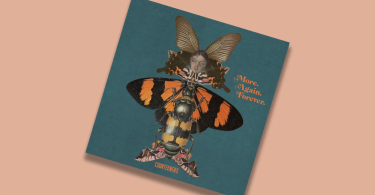On 19 February, at approximately 10.30pm, the world witnessed on various platforms, national television, live feed, social media or dodgy online stream, Alex Turner officially losing the plot&mdash
On 19 February, at approximately 10.30pm, the world witnessed on various platforms, national television, live feed, social media or dodgy online stream, Alex Turner officially losing the plot—the probable cause being an allergic reaction to toxic fumes emanating from the copious amounts of hair product plastered on his ever-expanding cranium.
The Arctic Monkeys’ fifth album, AM, had just been announced, by the very glamorous Emeli Sande, as Best British Album, and Alex Turner, much to the obvious displeasure of his fellow bandmates, launched into possibly the most ill-advised and awfully choreographed publicity stunt since Janet Jackson’s costume designer had one too many before Super Bowl XXXVIII, and thought she’d make a bit of history.
Bonkers or best awards speech ever?
Now, numerous reasons could have led to Turner’s sudden moment of neuro-combustion, and it’s not in doubt that good intentions were behind the swaggering, slinking primal war cry by the star.
“It will never die,” Turner slurred through his newly acquired Texas twang, which was either be remarking upon his beloved rock music, or alternatively upon bandmate Nick O’Malley’s facial hair, which seems to have taken on rather animalistic qualities. Long gone are the days of the long haired, shy Yorkshire poet, proclaimer of proto-punk scripture and simple everyman.
Instead, we have this slick and sleazy, black-suited spectre, who commits acts of ‘rock ‘n’ roll’ travesty such as flinging microphones to the floor and declaring “you can invoice me for the microphone.”
Thank you Mr Turner, but I’d rather invoice you for the medical fees I incurred when clawing my eyes out, trying to remove the image emblazoned onto the back of my eyelids, of the once humble and mercurial musician, finally laid low by media pandering and industry success.
It’s not so much the words that came forth from the mouth of the sneering, now-LA resident, but the ego-driven persona he adopted. The faux-Elvis stance and the uninterested delivery all conspired to give an impression of a self-obsessed egomaniac, purporting to a self-created stereotype of a rock star as, let’s face it, an arsehole.
Rock and roll is dying: not
That is not what ‘rock ‘n’ roll’ music is about, rock ‘n’ roll is the soul-shattering crunch of the Velvet Underground’s ‘Sister Ray,’ the possessed lunacy of Iggy Pop, the visceral anger and politics of the Sex Pistols. Rock ‘n’ roll tries to convey a very primal feeling or message, not to present an image of slick commercialism or one man’s idea of ‘cool.’
Seemingly high as a kite, Turner gave a speech dripping in sarcasm and slathered in copious amounts of drivel, that supposedly addressed a problem that doesn’t exist, that of the decline of rock ‘n’ roll, the musical press’ constant obsession.
Now, it is true that rock ‘n’ roll music, wrongly stereotyped as guitar music, has given way to more accessible forms of popular music currently. But those who lament this development as the ‘death of rock ‘n’ roll’ are simply wrong.
Black Keys drummer Patrick Carney recently declared that “rock and roll is dying,” and a whole host of reasonably important artists followed suit.
Rock ‘n’ roll is not ‘dying.’ It will always exist, and will always remain in the same position it has always been, as a sub-genre and the focus of a small, but important youth sub-culture that tends to drive British culture.
In the sixties it was the mods, the rockers and the hippies, the seventies had the punks, the eighties had rudies and skinheads, the nineties the grunge movement, and the 21st century has had numerous groups such as emos, skaters and currently hipsters.
Each generation reincarnates old music and fashion, and shapes it into something new, this will never end. As for rock ‘n’ roll supposedly going somewhere different from its previous central position on top of the charts, the idea is false.
Throughout British post-war history, there has always existed a brand of pop music, mostly devoid of message, and suitable for all ages from teeny-bopper to our gran, and it has always been the most successful, and topped the charts regularly.
The idea that this is not the case, and bands like Radiohead (never higher than no. 3 in the UK charts) ruled the roost ‘back in the good ol’ day when men were men and women were also men,’ is simply untrue.
Rock ‘n’ roll will always be available to those willing to look for it, even more so now given the explosion of the internet and social media, the music is more in our face then ever!
The NME will of course have you think differently, through its idolisation of Alex Turner, and supposed campaign on the evil forces of bubble gum pop which, let’s face it, is just another way to sell magazines, and hopefully screw more money out of record labels hoping to push their exploited, and for the most part piss-poor artists to the front cover, in the hope of maybe selling a record or two to a mindless and cause-less generation of screen-hoggers.
Alex Turner may have fallen foul of his own enormous image, but don’t you do the same. “Don’t believe the hype.”
What did you think of Turner’s speech? Have your say in the comments section below.
Image: Jason Persse / Flickr








